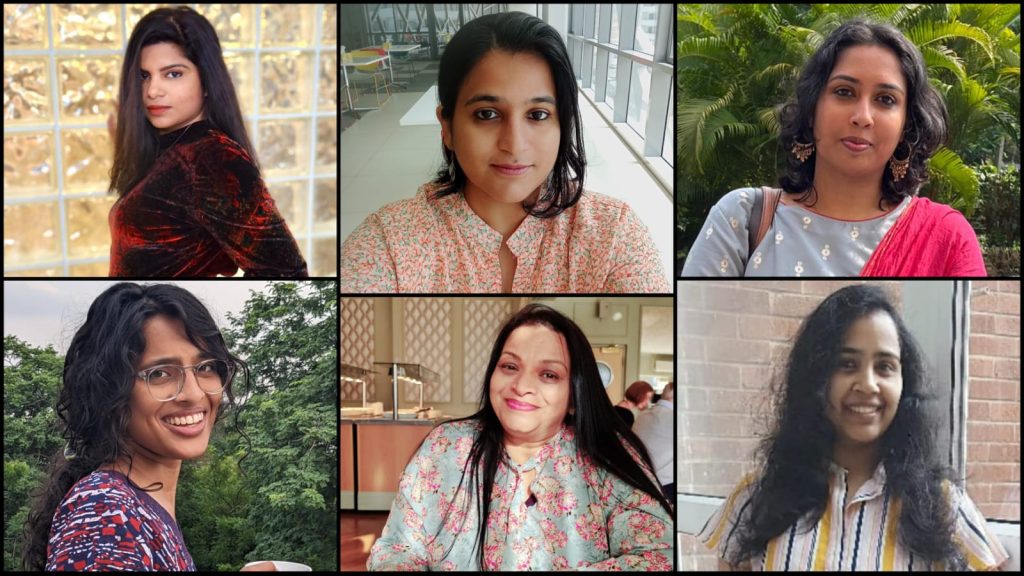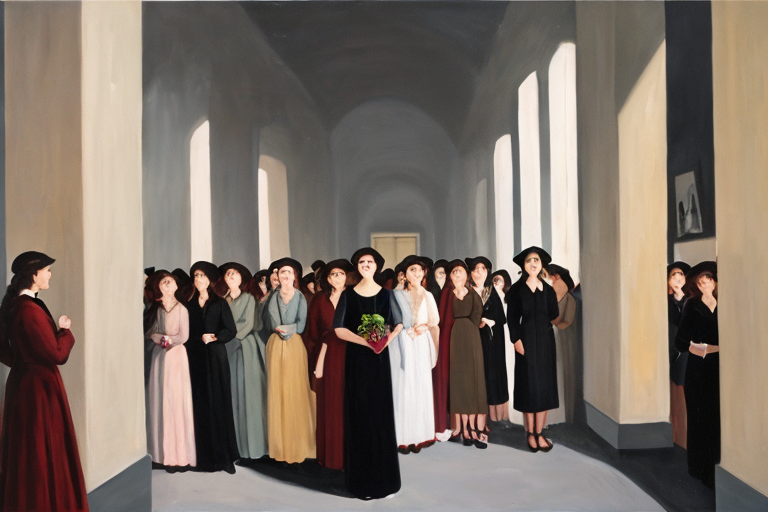Interview wih Fareeda
Farida D. is an Arab gender researcher and poet, studying Arab women’s everyday oppressions for over a decade. She has pushed back against society’s attempt to silence her and gone on to write 10+ books on feminism. Farida’s words have been on BBC Radio London, are continuously amplified by celebrities, and strolling all over social media.
Q (Aditi): There’s a certain notion that Feminism is a bad word. Or it aims on giving women the upper hand. How would you tackle such presumptions?
A: Feminism is seen as a bad word by people who think that the opposite of patriarchy is female domination and power over men. That’s not true. But it tells us two important things. One, we recognize that patriarchy is a bad thing. If we see female domination as a bad thing, then we also recognize that male domination is a bad thing. Even if we refuse to admit it, at the core, we understand the idea that a gender having dominance over another gender is something bad. And two, it also tells us that patriarchy has shaped our thinking, so much so that we cannot imagine what the opposite of patriarchy would be. We think the opposite of male dominance is female dominance. But that’s not the case. The opposite of male dominance isn’t another form of dominance. It is the absence of dominance. It is equality.

Q (Aditi): Could you also tell us how feminism impacts the lives of all sexes?
A: Feminism benefits everyone because when we liberate women from male domination, we liberate men from dominating. Because men dominate at a price as well. And that price includes not being allowed to cry or express emotions other than anger, the pressure of being the main breadwinner, the pressure to solve problems on their own, including mental or physical health problems because they don’t want to be seen as weak, not being believed, or being teased if they’re victims of rape or violence. And so on. All those things not only harm women who are at the receiving end, but also the men performing them. For example, not being allowed to cry and only to express anger harms men by suppressing their emotions and harms women because that anger is unleashed on us, not just on men themselves and as well as other men. Men have high morbidity and mortality rates because of the pressure to dominate in order to be seen as a real man. So, to liberate women from male domination means to liberate everybody.
Q (Aditi): Women’s consent (of any type) has been a controversial subject where the justice system, political leadership, religious clergy have all had a say for centuries. Except for the party who is affected- the Women. How would you like to respond to the latest fiascos around this?
A: From abortion bans to marital rape not being recognized to education bans, all of those matters, despite on the surface looking like they are different issues, at the core they are one thing. They are about men controlling what women can or cannot do with their bodies and lives. I believe it’s really important for all of us, women around the world, to come together and see that we are fighting the same fight. So even if I’m not in the US, I should fight against abortion bans the same if I am not in Afghanistan, I should fight against education bans. We need to see all those fights as one fight and not as different ones. Think of oppression as a massive tight knot when we untie any one part, we are also making it easier to untie the whole thing.
Q (Lakshmi): Is the balance of world economy lying on unpaid labor of women?
A: Not only does the world economy rely on women’s unpaid labor because most jobs are structured around the schedule that assumes there’s a wife at home taking care of the children and housework. But also it is how patriarchy started, by pushing women to work for free at home and men work outside for pay, putting women at an economic disadvantage. When women don’t have their own money in a capitalist world that requires money for survival, then they need to depend on men. And when women depend on men for survival, then we’re also pushed into a position where we are forced to endure violence or abusive family and marriages because we rely on them for financial support. And even though feminism forced for women’s right to work outside the house and in many places women can make their own money, not only are we still underpaid and unequally paid, but we’ll still end up with the major load of housework too, because men don’t want to do their part in the home. This stretches us thin and puts us at a further disadvantage. You might have heard questions like “how do you balance career and family?” directed often at women, not at men, because men aren’t even expected to balance that. Instead, men are encouraged to think that housework is a woman’s job, because this upholds a status quo that ensures patriarchy stays in place.
Q (Lakshmi): Why is rape not just a physical assault? Why is it associated with a woman’s pride and honor?
A: Because women are taught their value and worth is in their bodies, and we are taught how pride and shame is connected to our sexual organs, so when men rape us because they violate our bodies in general and our sexual organs specifically, we feel the sense of pride and shame robbed. But we have to understand first of all as women that one, our bodies are valuable, but our value isn’t in our bodies. And two, rape is not about sex. It may involve the sexual organs, but it is about power and dominance, not about sex.
Q (Maneesha): The state of Kerala is a paradox in the sense that even with a very high literacy, employment rates of women, we saw women be the flagbearers of patriarchy and stand at the forefront of the recent Sabarimala issues. Apart from being conditioned, why does this happen? Can we observe the same pattern in other pockets of the world?
Women who support patriarchy do so not only because they are conditioned to do so, but also to survive. When women are shamed, punished, beaten, violated for fighting for their rights over and over and all over the world, it wires and conditions us to believe that if I want to survive, then I must not fight. And when women don’t fight, they are given some rewards from patriarchy, like love, money, shelter, etcetera, for being good. And this wires us to think that perhaps that’s the closest I can get to having some form of power in the system. So, women uphold patriarchy through conditioning, but also to survive, and they pass those teachings on to their daughters, who then do the same thing. The thing is, even though fighting patriarchy is a hard path, upholding it is also hard and harms us further in the long run because we sell our voices, our choices, and our power to men who pay us with crumbs of rewards to silence us and then use our voices, our choices, and our power to make themselves and their patriarchy stronger.
Q (Uma): Moving forward, how do we make sure that the next generation grows up without gender biases?
A: One simple method in making sure the next generation gets facts and contents without gender bias is by focusing on the stories we tell children and how we tell them. Children’s books, movies, TV shows, all of these play a massive role in educating children on how to normalize patriarchy and internalize gender roles. We can use those same tools to educate children without gender bias. Be mindful of the stories your child is exposed to. Pick the ones that celebrate and focus on gender diversity and dismantling gender roles. But also, instead of banning media or stories that teach your child gender biases, focus on teaching your child how to critically analyze those stories. I don’t believe in banning because your child will get exposed to those sources elsewhere, from school, friends, so on. So, teaching them how to critically analyze is much more effective in ensuring they have the tools to unlearn harmful gender biases. For example, I would read to my child the story of Cinderella. But afterwards, encourage my child to question things like, “Is marriage the only happily ever after? How else could have Cinderella escaped from her evil stepmother?” Or, for example, in Sleeping Beauty, I would question “Do you think it’s okay to kiss someone without asking them first? If they can’t say yes, should you do it anyway?” etcetera. Use those stories that we’re taught to normalize patriarchy as starting points to unlearn patriarchy.
Q (Uma): Do you think women’s issues around the world are similar?
A: Women’s issues around the globe are similar because the patriarchy is one. How it manifests in different places is the only difference. But patriarchy doesn’t want us to see that. We are encouraged to think women in different places are fighting different beasts because this weakens our bond. It’s a divide and conquer strategy. The patriarchy is one beast that we are all fighting against. And when we see that, it becomes easier to imagine a strong global sisterhood that can overthrow patriarchy.
Q (Uma): In your view, what would be an easy way to get out of patriarchy? Is there an easy way at all?
A: Patriarchy started by pushing women in the homes to perform unpaid labor, so one way we can start to undo this is by liberating women from that expectation. When we liberate women from housework, we encourage them to have more time and develop the skills to work outside the house, earn their own money, be independent so that they aren’t stuck in situations where they endure violent husbands because they need financial supports. So don’t teach your daughters that housework is their duty, and don’t teach your sons that housework is a woman’s job. Encourage your daughters to work outside the house like you do your sons and encourage your sons to do their part in the house like you do your daughters. We can rewrite the family structure. We can expect both partners to get paid work, and both partners share housework. And I believe this can create a solid foundation where we can have equality in other aspects too. We will have maternity as well as paternity leaves. We will reduce the house workload on women and the pressure to be a breadwinner, on men and so on. We dismantle gender roles in such a way that benefits everybody.
Note: The video of the interview is available on the Darsana YouTube channel.
(https://youtu.be/IP3zt3D_bh4)












